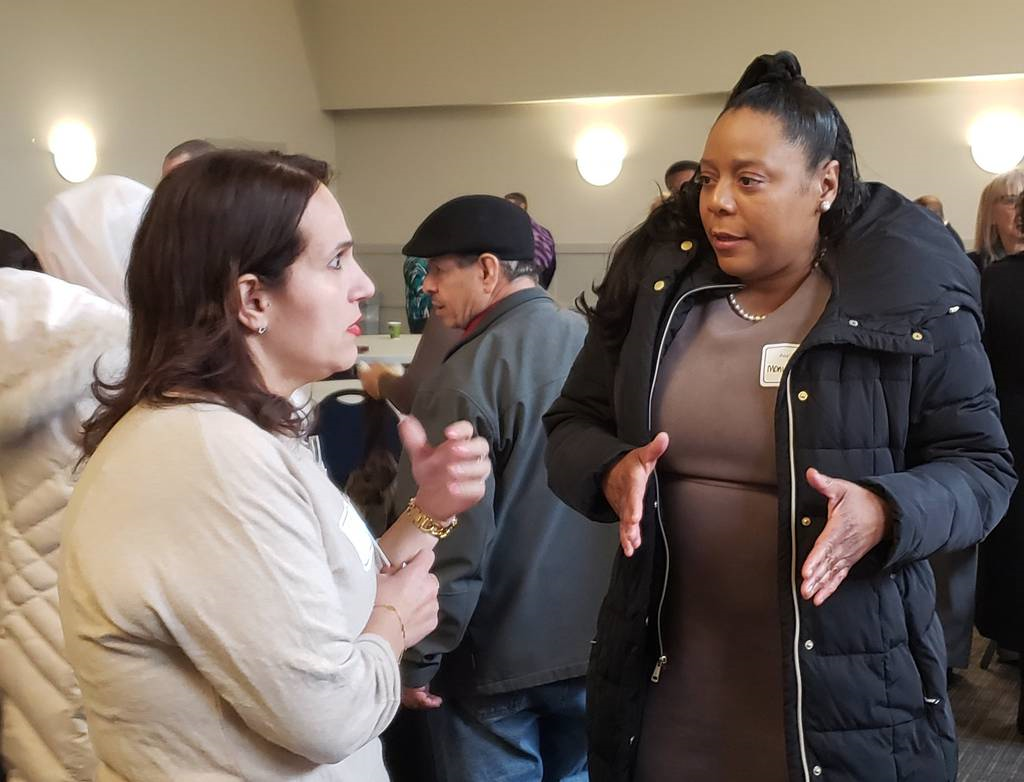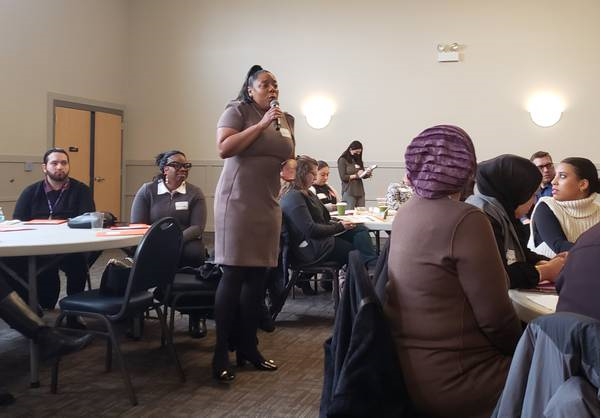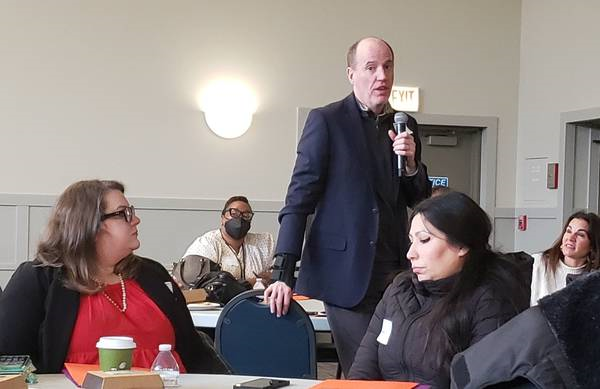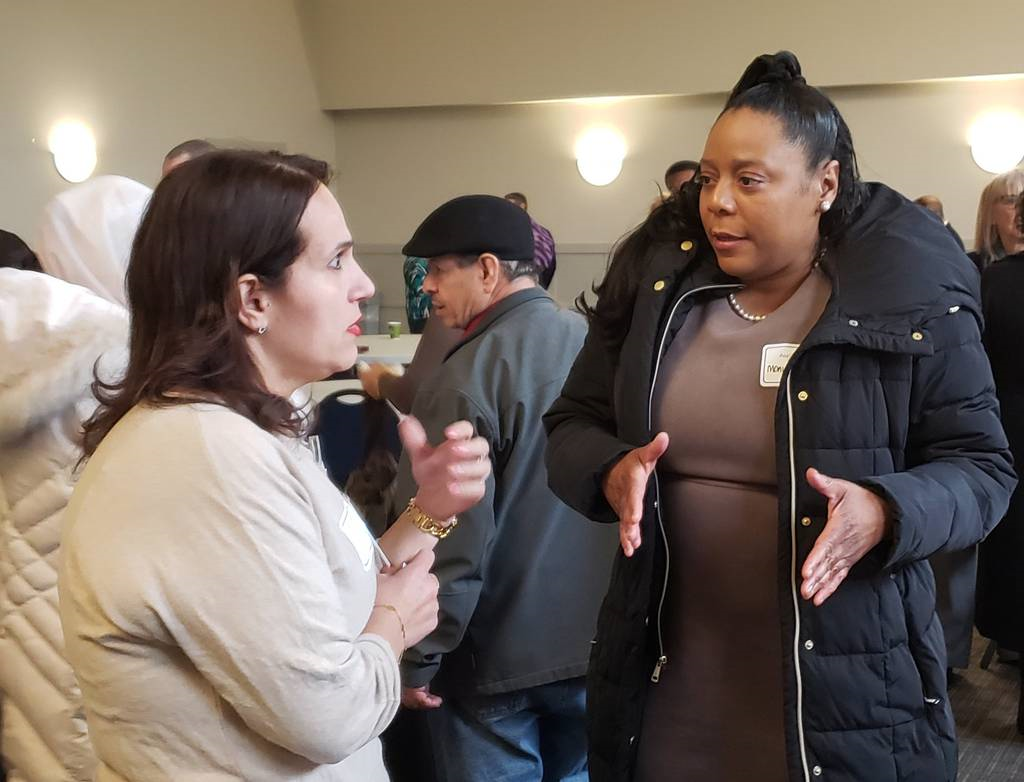- Home
- For Older Adults, Families & Caregivers
- Connect with Support
- Health & Safety
- Adult Protective ServicesAbuse Investigation
- Emergency PreparednessPlanning Resources
- COVID-19 Vaccines, Boosters and ResourcesStay Healthy
- Illinois Pathways to HealthManage Chronic Conditions and Prevent Falls
- Take Charge of Your HealthImprove Health with Interactive Workshops
- Falls Prevention ProgramsGet Fit and Prevent Falls
- Long-Term Care Ombudsman ProgramRights Advocacy
- Senior Medicare Patrol (SMP)Prevent Fraud
- Quality of Life
- Find One Near YouMeal Programs
- Caring Together, Living Better (CTLB)African-American/Latinx Caregiver Support
- H.O.P.E. by AgeOptionsLiving Independently
- Library ProgramCommunity Engagement
- Thrive with PrideLGBT+ Initiatives
- Memory CafésActivities for People Living with Dementia
- TCARE (Tailored Caregiver Assessment and Referral)Caregiver Stress Reduction
- UniperVirtual Senior Center
- Social Isolation ProgramsCommunity Connection
- TrualtaCaregiver eLearning and Online Community
- Trualta
- For Professionals & Partner Agencies
- How Can We Help?
Advocates call for increased funding for caregivers and other senior programs

Cook County Commissioner Monica Gordon, right, speaks with Ranna Jaber, patient resource manager with Chicago Family Health Center Inc., after Friday’s legislative breakfast. (Francine Knowles / Daily Southtown)
“There are only four kinds of people in the world: those who have been caregivers, those who are currently caregivers, those who will be caregivers and those who will need caregivers.”
That quote from former first lady Rosalynn Carter was shared Friday at a legislative breakfast held by advocates and service providers for older adults at the Palos Heights Recreation Center. They discussed challenges of unpaid family caregivers and called for more state funding to support them and other programs that aid seniors.
Diane Slezak, president and CEO of AgeOptions, called on legislators to boost funding for the Illinois Family Caregiver Act from $4 million to $6 million to support Caregiver Resource Centers. The nonprofit partners with agencies to connect older adults and caregivers with resources and services, and funds senior services programs. It is the Area Agency on Aging for suburban Cook County.
Slezak cited an AARP study that found there are more than 1.5 million caregivers in Illinois who provide 1.4 billion hours of unpaid work annually with an estimated value of $18.5 billion. Support for unpaid caregivers delays more costly nursing home care, she said.
Representatives from Palos Heights-based Pathlights shared with state legislators and other elected officials how the organization’s Caregiver Resource Center’s Stress Busters program assists clients. Among them is a client caring for her mom and dad, both in their 90s.
The client’s dad had significant memory loss, was incontinent and needed daily help managing medications and with personal care, and the mom had physical challenges, memory loss and anxiety, said Pathlights Executive Director Elaine Grande. While the client was able to work remotely from home, which was a big help, she struggled to balance her work responsibilities and the care needs of both parents, Grande said.
The organization’s nine-week Stress Busters program provided much needed support to the client. It educates participants about Alzheimer’s disease and related dementias and the caregiving journey, provides space for caregivers to share their experiences and teaches them techniques to combat the stress of everyday caregiving, said Catherine Stowers, Pathlights director of caregiver and support services.

Cook County Commissioner Monica Gordon speaks during the legislative breakfast at the Palos Heights Recreation Center. (Francine Knowles / Daily Southtown)
Cook County Commissioner Monica Gordon, 5th District, elected to her first term last year, shared how her aunt was the primary caregiver of her grandmother, who died at age 101 last year.
“What I want to commit to do is to establish some partnership with AgeOptions to see how we can increase caregiver support services within the county,” she told attendees. “I’m definitely interested in leading that charge within the county.”
The older adult population in suburban Cook County increased significantly in recent years, with the biggest percent rise among people of color, Slezak said. Between 2010 and 2021, the number of adults ages 60 plus rose 30% to 593,499, Slezak noted in a slide presentation citing U.S. Census Bureau data. Among whites, it increased 15% to 428,850. But among Hispanics, the number doubled to 50,904. Among Blacks, the number spiked 64% to 80,560, and among Asians, it shot up 97% to 44,536. The immigrant older adult population in suburban Cook County also has increased dramatically, rising 57% to 145,670.
Slezak reminded the gathering that COVID-19 is still with us and said vaccination rates among older adults in the south suburbs are among the lowest, which puts them at greater risk. Citing Cook County Department of Public Health data from December, she listed the top 10 communities with the lowest rates of seniors having received all COVID-19 vaccines plus the latest booster:
Ford Heights: 14.2%
Burnham: 18%
Lansing: 19.7%
South Chicago Heights: 20.8%
East Hazel Crest: 21.5%
Harvey: 21.6%
Robbins: 21.6%
McCook: 22.2%
Schiller Park: 22.3%
Sauk Village: 22.8%
By comparison, she listed the top 10 communities with the highest rates:
Kenilworth: 77.7%
Western Springs: 72.8%
Wilmette: 69.9%
River Forest: 69.5%
Northbrook: 68.2%
Winnetka: 67.3%
Flossmoor: 66.6%
Glencoe: 61.3%
Buffalo Grove: 60.7%
Glenview: 59.9%
Slezak also shared other top legislative priorities of senior advocates:
• Increasing state funding from $1 million to $2 million to combat social isolation among seniors. Studies find that social isolation can be as detrimental to one’s health as smoking 15 cigarettes a day, she said.
• Increasing state funding for Alzheimer’s disease and related disorders from $1 million to $2 million to fill gaps in services and fund evidence-based training for caregivers.
• Sustaining funding for home-delivered meals.
• Increasing reimbursement rates and funding to allow for higher salaries and benefits for agencies that help keep older adults safely in their homes.
• Increasing funding to the Aid to the Aged, Blind and Disabled cash assistance program.

State Sen. Bill Cunningham talks about support in Springfield for aging initiatives during a legislative breakfast in Palos Heights. (Francine Knowles / Daily Southtown)
Francine Knowles is a freelance columnist for the Daily Southtown. She is also a grants specialist at Chicago-based CJE SeniorLife, which receives funding from AgeOptions.
By Francine Knowles
Daily Southtown
Mar 06, 2023, at 2:39 pm
